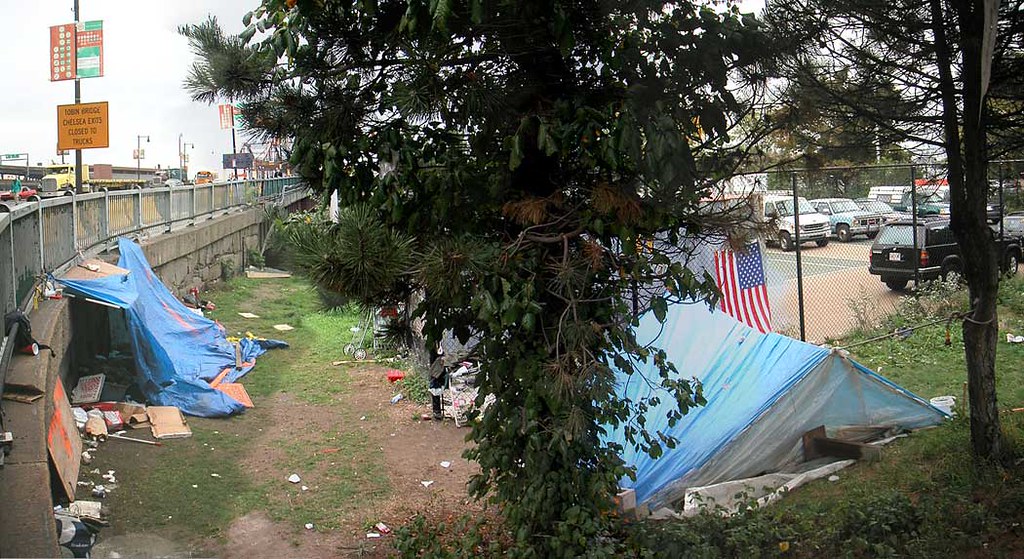The city of Minneapolis is accused of violating the constitutional rights of people who are homeless in a lawsuit filed in federal court on October 19. It relates to city and police actions taken in the summer to raid encampments in public parks, evicting residents and destroying their property.
The lawsuit, brought by the American Civil Liberties Union of Minnesota and Mid-Minnesota Legal Aid, alleges that the city, Hennepin County, the police and the Parks and Recreation department violated the Fourth and Fifth Amendment rights of the people targeted. It seeks a temporary restraining order and a preliminary injunction against further evictions, plus damages for property losses.
The Fourth Amendment protects against “unreasonable searches and seizures”, while the Fifth protects against the loss of “life, liberty, or property, without due process of law.” The lawsuit alleges that police raided camps with little or no notice, using bulldozers. As a result, residents lost personal items that were important to them, identifying documents, medications, clothing and bedding. The tents alone cost $100 each, the suit states.
People had started living in the camps earlier in the year as COVID-19 hit—a situation that has become increasingly widespread across North America, as many avoid shelters that carry additional risks during the pandemic. One encampment in Minneapolis grew to almost 300 people in 600 tents over the summer.
One man named in the lawsuit, Patrick Berry, who was evicted from his camp this summer, explained why he has avoided going to homeless shelters. “I’ve heard a lot of stories about people getting exploited or assaulted,” he said. “And the shelters are crowded. The risk from COVID is very real when you’re sleeping in a large indoor area.”
An ACLU staff attorney, Clare Diegel, blasted the city and county for failing to address its worsening homelessness crisis. “Instead, the so-called plan is to repeatedly kick out hundreds of residents without permanent homes from public parks, upend their lives, destroy their property and then fail to find them somewhere safe to live,” she said. “Throwing away people’s only belongings without notice is a shameful violation of their civil liberties.”
The city’s Parks and Recreation Board responded that the allegations are “simply not true.” Camps were cleared, they said, with respect to Governor Tim Walz’s coronavirus guidelines, and only after “documented crime, health, and safety incidents.” The department claims that timely notice was given in all cases, and that it provided social service outreach and transportation to shelters.
In contrast, the lawsuit states that police gave camps 72 hours’ notice, but in fact showed up just 24 hours later for a raid. As of October 15, there remained 222 tents situated in 14 parks. The city had said that all would be removed by the end of the month.
The racial injustice of Minneapolis’s crisis of unhoused people has been made even more visible after the May police murder of George Floyd in the city, and the uprising it sparked. Black and Native American residents of the Twin Cities region suffer severe economic inequalities, with a 25 percent poverty rate compared to 6 percent for white residents. Their median household incomes are also a fraction of white households’.
These inequalities are apparent within the homeless population. By a 2018 count, there were 4,100 people experiencing homelessness in Hennepin County—half of whom were Black, and 15 percent of whom were Native American. The pandemic has exacerbated these preexisting trends, with unemployment, closures of businesses and social services and the virus itself hitting low-income and homeless residents hardest.
Regardless of the outcome of the lawsuit, justice will only come when the largely Black and Brown homeless population of Minneapolis can find permanent, decent housing.
Photo by Ron Gilbert via Flickr/Creative Commons 2.0.




